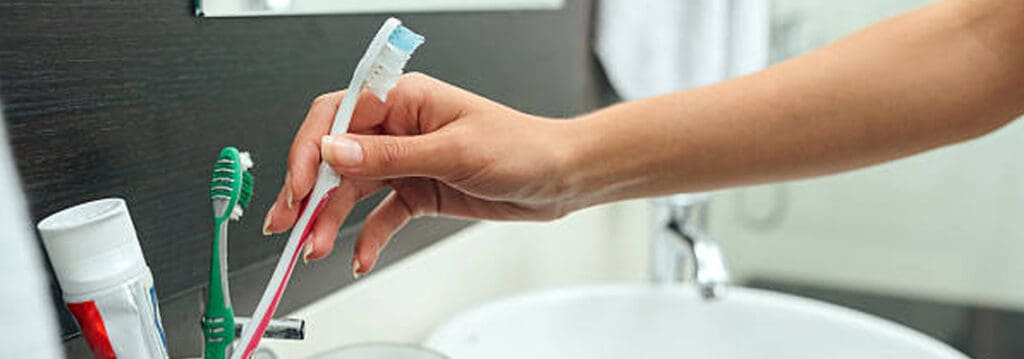How Often Should I Replace My Toothbrush?
How recently did you change your toothbrush? Our dental hygiene is one element of our routine that doesn’t receive as much consideration or attention as other parts of our regimen when it comes to health and beauty. We discard old meals, replenish vitamins and supplements, and update our beauty products frequently. To keep your oral health at its best, you should pay attention to several crucial guidelines.
When To Change Your Toothbrush?
The American Dental Association (ADA) and the majority of dentists advise switching your toothbrush every three months. Brushes gradually lose their ability to effectively remove plaque from teeth and gums due to regular wear and tear. According to studies, the bristles lose their efficacy and start to break down after around three months.
Another thing to keep in mind is that bacteria may lurk and accumulate in toothbrush bristles, something we definitely don’t like to think about. Because of this, it’s critical to switch out your toothbrush after a cold to avoid the danger of reinfection.
If care is not taken, fungus and bacteria can also grow in the bristles. After use, be sure to properly rinse and dry your toothbrush before storing it upright, exposed, and away from other used toothbrushes. Cover your toothbrush head when you’re traveling to keep it safe and stop the transmission of germs.
If you are unsure of how long it has been, take close attention to the state of your toothbrush head, especially if you see any dark color changes, which are a symptom of mold. Also, look for frayed or worn-out bristles.
What Happens If I Don’t Change My Toothbrush Often Enough?
If the fact that germs and fungi build up on toothbrush bristles over time isn’t enough to convince you to change your toothbrush more frequently, there are a number of other hazards and unpleasant consequences associated with doing so. One danger is that aged toothbrushes are less efficient at eliminating plaque from your teeth, which causes gingivitis. This can lead to gum damage. The infection brought on by untreated gingivitis might result in tooth loss.
Even less tempting are the risks associated with overusing toothbrushes (see: bacteria and fungus buildup), having mouldy toothbrushes, or—possibly the least appealing risk—ingesting foreign objects if kept close to a toilet.
Not sure about you, but I’m planning to switch out my toothbrush and make an appointment for a full cleaning at the dentist.
What To Consider When Shopping for Dental Products?
Ask your dentist for advice on what you should buy depending on your unique needs, your specific dental health situation, etc. at your next dental exam and cleaning.
Choosing a toothbrush head size that only brushes one or two teeth at once, using toothpaste with fluoride that has been approved by the ADA, thinking about using mouthwash to further combat plaque and gingivitis, and remembering to floss are some suggestions that dental professionals frequently make.
By removing plaque, lowering gingivitis, and eradicating teeth discoloration, electric toothbrushes have been shown to enhance oral health beyond what a manual toothbrush can. Additionally, it has been demonstrated that they reduce plaque buildup on patients’ teeth who have periodontal disease.
Investigate the goods that best suit your requirements, and don’t forget to ask your dentist for suggestions.
Dr. Motiwala in International Press
To access the article, kindly click the logo of the NEWS website below.
| |
Don’t Wait, Contact Us Now!
Dial +91 99596 14584 to speak with Dr. Motiwala Dental Clinic & Implant Center about your treatment choices and avoid paying any sinus lift costs in India. Contact us using the form on our CONTACT US page, and we’ll get back to you as soon as we can with the information you require.
